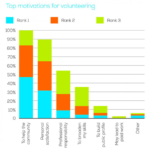AR/VR: the new reality
Virtual reality and augmented reality is an emergent industry tipped to be worth…
Virtual reality and augmented reality is an emergent industry tipped to be worth around NZ$205 billion globally in the next five years. Jessica Manins, executive director of New Zealand’s first ever VR/AR Association, explains why it’s time to collaborate on this mega-opportunity.
Call it a type of ‘reality check’. The recently-formed New Zealand VR/AR Association (NZVRARA) is a chance for top innovators in this country’s booming virtual and augmented reality sector to join forces and take stock of where they’re at, and what needs to be done, to represent and promote New Zealand’s VR, AR and ‘mixed reality’ tech sectors both nationally and internationally.
One of the biggest driving forces behind this initiative is Association executive director Jessica Manins, who comes with all the right credentials for such an important role.
First, let’s consider the size of this emerging opportunity.
The VR/AR industry is predicted to be worth some NZ$205 billion globally over the next five years. Jessica believes that spring-boarding off the gaming and entertainment industry could see the sector rivalling wine as a $2.5 billion export industry for New Zealand within a decade.
NZVRARA (www.nzvrara.nz) has already held its first industry event and secured the rights as the New Zealand chapter of the fast-growing global VR/AR Association, which it sees as a platform into overseas markets.
“It’s vital that we connect nationally and build a robust platform for collective offshore representation,” explains Jessica. “Being connected to the global VR/AR Association provides a great springboard to the US and other markets.”
Her organisation is also planning an international virtual, augmented and mixed reality conference in Wellington in May.
Foundation members include Wellington holographic VR/AR tech company 8i, Massey and Victoria Universities, and emerging companies such as Auckland-based Imersia (see separate story) and the recently opened Christchurch HTC room-scale VR experience space – appropriately called The VR Room.
Jessica is keen to build member numbers – people working or interested in the industry.
Driven to succeed
To champion a new technology sector you need someone who is no stranger to promoting causes, and Jessica Manins is that person.
Her background is varied and interesting to say the least. She’s spent time both behind and in front of the camera in film and television. There was an eight year stint at StarNow, a Wellington-based online auditions and jobs website that went global, and allowed Jessica to help establish both the Australian and UK operations.
Her passion for forward thinking leadership, innovation and vibrant communities saw Jessica take on the regional manager’s role at Bizdojo – a shared office and innovation space in Wellington which runs partnered acceleration and activation programmes.
Today Jessica is centre executive of ProjectR – a collaborative space, also in Wellington, that encourages businesses and researchers to develop, test and showcase innovations within virtual, augmented and mixed reality. The Auckland equivalent is the ATEED-funded AR/VR Garage.
The mother-of-one is also co-creator of Leading Ladies Wellington – a peer networking group that offers women support, guidance and encouragement in their professional lives.
All of the above holds her in good stead for the job of championing VR/AR and linking all the players and supporters together for the common ‘NZ Inc’ cause.
It’s vital that New Zealand has a central forum for such a young industry. Jessica believes. In a global sense everyone’s still “just muddling around”, she says, and nobody can say they’re a true expert on VR/AR.
“We all need to acknowledge that, yes, it is still early days, but New Zealand does have fantastic capability,” she says. “We need to grow that capability and capacity to win those offshore projects, and education is one of our key means of doing that.”
Jessica uses Finland as an example of collaboration between small developers and government investment. “Finland has an export game industry worth $3 billion, and that’s a direct result of their government investing in small studios and encouraging the sharing of knowledge,” she says. “That’s what I’d like to see happen here. Us working together for the good of the sector and the good of the country.
“But it will take both private and public investment; so lobbying and advocacy will be a big part of what the VR/AR Association does going forward.”
Jessica explains that VR and AR technology has applications across a broad range of verticals, including healthcare, education and real estate. “There are already houses and apartments being sold overseas without the buyer [physically] stepping inside them, for example.”
Physical workshops will increasingly be replaced by interactive training, she adds. “The Army and Police have been doing this for some time, and the Fire Service is now doing it too.
“VR technology is ideal training for pressure situations.”
Looking ahead Jessica sees NZVRARA as the key to collaboration within the VR and AR industry. “Until now I’ve seen all these people scrambling over tiny pieces of work in New Zealand. That’s just going to get tiring.”
Better to work together and go for the much bigger offshore projects, she says.
So the drive is on for more NZVRARA members, and to build a definitive database.
The more members, the stronger the mouthpiece for the entire industry in offshore markets.


